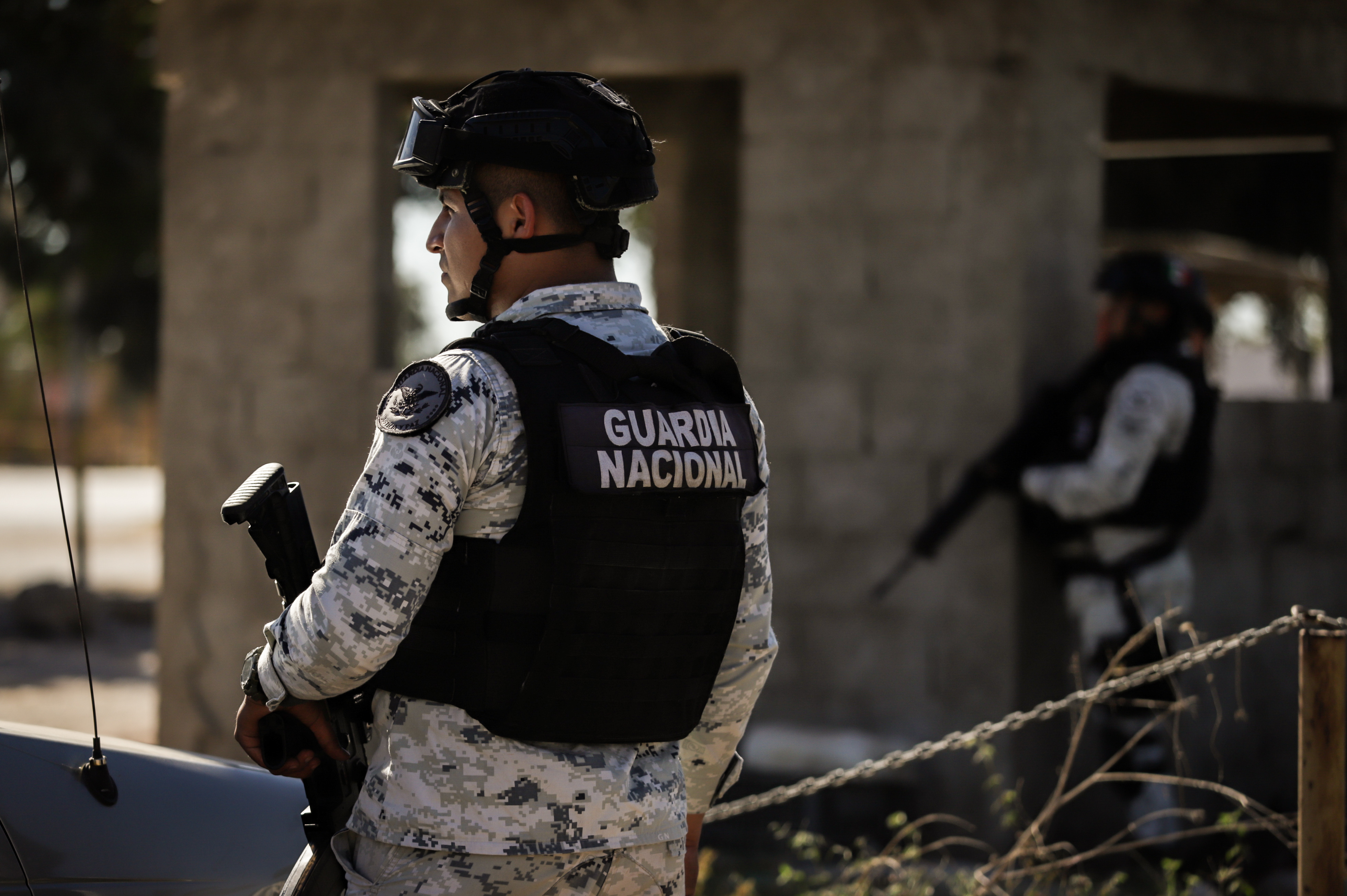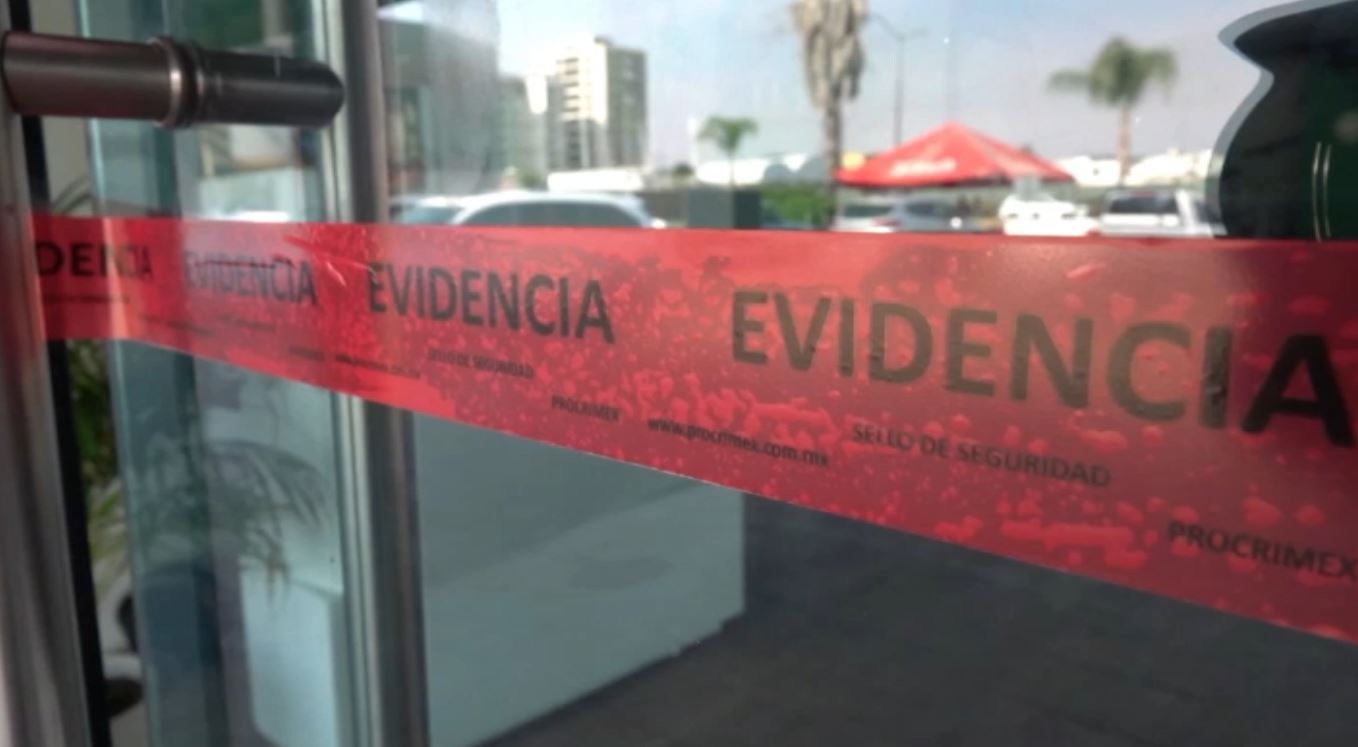Narco-Terrorism? US Charges Cartels, Raising Legal Concerns
Narco-Terrorism? US Charges Mexican Cartel Leaders, Igniting Debate
Introduction: A Bold New Strategy or Overreach?
The War on Drugs just took a dramatic turn. U.S. officials recently unveiled an indictment against two high-ranking Mexican drug cartel leaders, but not on typical drug trafficking charges. This time, they're facing accusations of narco-terrorism. Yes, you read that right. Narco-terrorism. But what does that even mean, and is it the right label? This move is sparking intense debate, raising questions about the government's strategy and whether it's a necessary escalation or a potentially dangerous overreach.
Defining Narco-Terrorism: Blurring the Lines
What Exactly is Narco-Terrorism?
Narco-terrorism is a term that attempts to connect drug trafficking with acts of terrorism. It suggests that drug cartels use violence and intimidation to achieve political goals, similar to traditional terrorist organizations. Think of it as a hybrid – a deadly combination of the ruthless pursuit of profit and the intentional spread of fear to destabilize society. But is that really what's happening, or are we trying to fit a square peg into a round hole?
The Key Difference: Profit vs. Political Ideology
The core distinction lies in motivation. Terrorist groups typically use violence to advance a specific political or ideological agenda. Drug cartels, on the other hand, are primarily motivated by money. While they may use violence to protect their profits and territory, their ultimate goal is financial gain, not political revolution. So, can a group be both a drug cartel and a terrorist organization? That's the million-dollar question – or, in this case, the multi-billion-dollar question.
The Trump Administration's Stance: Foreign Terrorist Organization Designation
This isn't coming out of nowhere. The Trump administration made waves back in February when it designated the Sinaloa Cartel and seven other Latin American crime organizations as “foreign terrorist organizations.” This was a major escalation in the U.S. government's approach to combating drug cartels. President Trump himself called for this designation, signaling a zero-tolerance policy and a willingness to use all available tools to combat these criminal organizations.
Upping the Pressure: More Than Just Drug Charges
The “foreign terrorist organization” label carries significant weight. It allows the U.S. government to impose harsher sanctions, freeze assets, and prosecute individuals who provide material support to these organizations. It also broadens the scope of legal action, making it easier to target not only cartel members but also anyone who aids them, even indirectly. The goal is to choke off the cartels' financial lifeline and disrupt their operations on a global scale.
Legal Ramifications: A Tougher Fight Ahead
Facing Terrorism Charges: A Different Legal Landscape
When drug cartel members are charged with narco-terrorism, they face a drastically different legal landscape. Terrorism charges carry much stiffer penalties than drug trafficking charges. They also open the door to a wider range of investigative tools and prosecutorial strategies. This can lead to longer prison sentences, asset forfeiture, and other measures designed to dismantle the cartels' power.
The Burden of Proof: Proving Terroristic Intent
However, prosecuting narco-terrorism cases is far from easy. Prosecutors must prove beyond a reasonable doubt that the cartel's actions were not only violent but also intended to achieve a political or ideological goal. This can be a difficult task, as cartels often operate in the shadows, making it hard to discern their true motives. Are they simply protecting their turf, or are they trying to undermine the government?
The "Act Like a Terrorist" Argument: Justifiable?
U.S. Attorney Adam Gordon put it bluntly: “If you act like a terrorist, you shouldn’t be surprised if you are charged as one.” This statement encapsulates the core argument behind the narco-terrorism designation. The idea is that if drug cartels engage in acts of violence that resemble terrorism, they should be treated as terrorists, regardless of their primary motivation.
A Question of Scale and Impact
But is the scale and impact of cartel violence truly comparable to that of traditional terrorist organizations? While cartels are undoubtedly responsible for immense suffering and destabilization, their actions are often localized and driven by economic motives. Terrorist groups, on the other hand, often aim to achieve widespread disruption and political change, often on a global scale. Is it fair to equate the two?
Ethical Concerns: Moral Equivalence?
Comparing Cartels to Al-Qaeda: A Dangerous Precedent?
One of the biggest ethical concerns is the potential for moral equivalence. Are we really comparing drug cartels to groups like Al-Qaeda or ISIS? These terrorist organizations are driven by extremist ideologies and seek to inflict mass casualties. Drug cartels, while brutal, are primarily motivated by profit. Equating the two risks downplaying the unique threat posed by ideological terrorism.
The Risk of Overreach: Eroding Civil Liberties
Another concern is the potential for overreach. The narco-terrorism designation gives the government broad powers to investigate and prosecute individuals and organizations suspected of supporting drug cartels. This could lead to the erosion of civil liberties and the targeting of innocent individuals. Are we willing to sacrifice fundamental rights in the name of fighting the War on Drugs?
Implications for US-Mexico Relations: A Strained Relationship
Potential Fallout: Increased Tensions and Distrust
This new strategy could also strain relations between the U.S. and Mexico. The Mexican government may view the narco-terrorism designation as an infringement on its sovereignty and a sign of distrust. This could lead to increased tensions and hinder cooperation in the fight against drug trafficking. It's crucial to maintain open lines of communication and work together to address this shared problem.
The Need for Collaboration: A Two-Way Street
Ultimately, combating drug cartels requires a collaborative effort. The U.S. and Mexico must work together to address the root causes of drug trafficking, including poverty, corruption, and lack of opportunity. A purely enforcement-based approach is unlikely to be successful in the long run. We need to invest in sustainable development and strengthen institutions in both countries.
Alternative Strategies: Beyond the "War on Terror" Model
Addressing the Root Causes: A Holistic Approach
Instead of treating drug cartels as terrorist organizations, perhaps we should focus on addressing the underlying factors that contribute to their rise. This includes investing in education, job creation, and community development in vulnerable areas. A holistic approach that tackles the root causes of crime is more likely to be effective in the long run.
Focus on Harm Reduction: Minimizing the Damage
Another alternative strategy is to focus on harm reduction. This involves implementing policies that minimize the negative consequences of drug use, such as needle exchange programs and drug treatment centers. Harm reduction can save lives, reduce crime, and improve public health. It's a pragmatic approach that prioritizes the well-being of individuals and communities.
The Future of the War on Drugs: A Crossroads
A Defining Moment: Choosing Our Path Forward
The narco-terrorism designation represents a pivotal moment in the War on Drugs. It's a bold and controversial move that could have far-reaching consequences. Are we on the right track, or are we repeating past mistakes? Only time will tell. But one thing is clear: we need to have a serious conversation about the future of drug policy and the best way to protect our communities.
Hope or Hype: The Real Question
The truth is, this new strategy might offer hope to some, but to others it may just be more hype. It is vital that everyone involved, from law enforcement to the communities most affected, are aware of the possible consequences and the true meaning of these charges. There's a real threat here to personal freedoms that needs to be recognized.
Conclusion: Weighing the Risks and Rewards
The U.S. government's decision to charge Mexican drug cartel leaders with narco-terrorism is a complex and controversial issue. While it reflects a desire to crack down on these criminal organizations, it also raises serious ethical, legal, and political questions. We must carefully weigh the potential risks and rewards of this new strategy before we commit to it fully. The future of the War on Drugs, and our relationship with Mexico, may depend on it.
Frequently Asked Questions (FAQs)
Here are some frequently asked questions to shed more light on this evolving situation:
- What specific acts are being used to justify the narco-terrorism charges?
The indictments likely focus on acts of extreme violence, such as bombings, massacres, and assassinations, intended to intimidate the population and destabilize the government. These actions must be demonstrably connected to a political objective beyond mere profit.
- How does this new designation affect ordinary citizens living near cartel-controlled areas?
Unfortunately, it could lead to increased surveillance, heightened security measures, and a greater risk of being caught in the crossfire. It's crucial for governments to provide support and protection to these vulnerable communities.
- What are the potential legal challenges to the narco-terrorism charges?
Defense attorneys will likely argue that the cartel's actions are primarily motivated by profit, not political ideology, and that the government is overreaching by applying terrorism laws to drug trafficking. They may also challenge the evidence used to support the charges.
- Could this strategy be applied to other criminal organizations around the world?
Yes, the narco-terrorism designation could potentially be applied to other criminal organizations that engage in acts of violence similar to those of terrorist groups. However, each case would need to be carefully evaluated to determine whether the criteria for terrorism are met.
- What role can international cooperation play in combating narco-terrorism?
International cooperation is essential. This includes sharing intelligence, coordinating law enforcement efforts, and providing assistance to countries affected by drug trafficking and violence. A united front is needed to dismantle these criminal networks.

